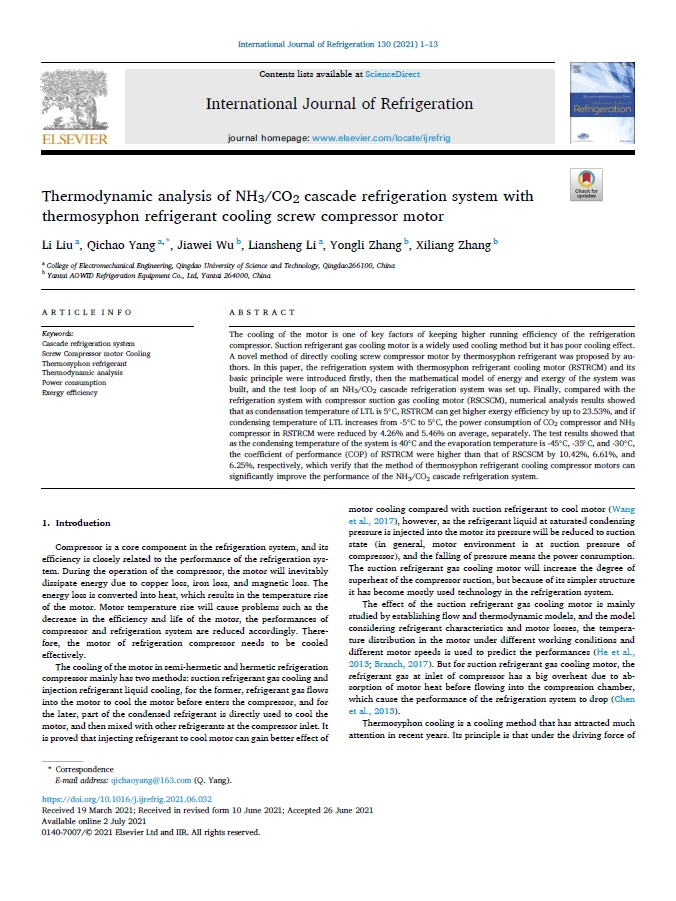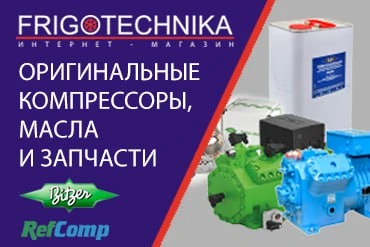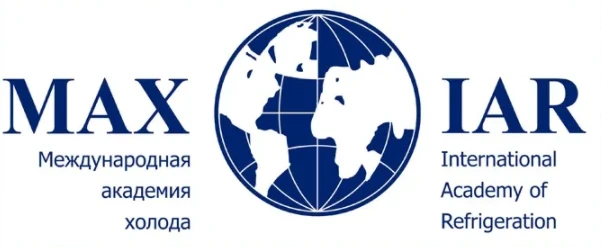Автор: Liu L., Yang Q, Wu J., Li L., Zhang Y
The cooling of the motor is one of key factors of keeping higher running efficiency of the refrigeration compressor. Suction refrigerant gas cooling motor is a widely used cooling method but it has poor cooling effect. A novel method of directly cooling screw compressor motor by thermosyphon refrigerant was proposed by authors. In this paper, the refrigeration system with thermosyphon refrigerant cooling motor (RSTRCM) and its basic principle were introduced firstly, then the mathematical model of energy and exergy of the system was built, and the test loop of an NH3/CO2 cascade refrigeration system was set up. Finally, compared with the refrigeration system with compressor suction gas cooling motor (RSCSCM), numerical analysis results showed that as condensation temperature of LTL is 5°C, RSTRCM can get higher exergy efficiency by up to 23.53%, and if condensing temperature of LTL increases from -5°C to 5°C, the power consumption of CO2 compressor and NH3 compressor in RSTRCM were reduced by 4.26% and 5.46% on average, separately. The test results showed that as the condensing temperature of the system is 40°C and the evaporation temperature is -45°C, -35°C, and -30°C, the coefficient of performance (COP) of RSTRCM were higher than that of RSCSCM by 10.42%, 6.61%, and 6.25%, respectively, which verify that the method of thermosyphon refrigerant cooling compressor motors can significantly improve the performance of the NH3/CO2 cascade refrigeration system.

















Комментарии
Войдите или зарегистрируйтесь, чтобы оставить комментарий